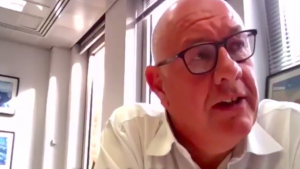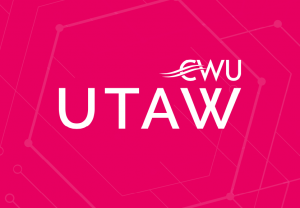Online Engagement Festival: Day Two – Growing the CWU
Union Matters September 29 2020
Tuesday 29th September 2020
The CWU has “broken new ground” in organising new sectors of workers and stands “in the forefront” of the trade union movement.
At ‘Growing the CWU’, a session on the second day of our Online Engagement Festival, CWU general secretary Dave Ward told members that the union’s activity in the past few years has “set a path for the trade union movement to be having this type of discussion.
“The CWU has a profile – industrially and politically – where we have to be in the forefront of what is the future of our movement and the future of our own union.”

Dave Ward
He went on to say that people “recognise that the union can’t stay as it is”, offering his personal view that the future of trade unionism is seeing “where there’s common ground” between other unions, “forging links”, and “being open to new ideas.
“We need to look at the rapidly changing world of work, what’s happening out there, and the political and economic forces that are out there, and the challenges we have to reconnect with workers.
“By growing the movement, we grow our own union, we stop the race to the bottom, and the CWU are in a strong position to grow this debate.”
Head of recruitment and organising Ray Ellis discussed the new challenges the union has set itself in terms of organising, addressing in detail the structures that have accompanied those challenges.
Describing the “constant” need to organise to avoid pressure on organised companies by companies where the union isn’t organised, Ray also discussed organising in new sectors of the economy where the level of union organisation is “fairly minimal”.
In this context, he mentioned the union having “broken new ground” by the launch of the United Tech and Allied Workers (UTAW) branch, which aims to address the “negligible” lack of organising in Britain’s tech sector – where only 3 per cent of people are organised in an industry that comprises 9 per cent of Britain’s workforce.
Ray went on to say that the CWU’s trick in this latest initiative is self-organisation.
“It’s not a case of the CWU sweeping down and bringing people into the union and looking after them.
“Trade unionism only works best when members are fully engaged.
“We want to give people the tools to organise in their own workplaces and sectors, and produce a workplace union that we have already within the CWU – we want to replicate that elsewhere.”
John, who is a founding member of UTAW, followed Ray, who discussed the branch’s drive to “desegregating” tech workers, and to bring them together.
Discussing the tech sector’s instrumentality in moving capital all over the world for the super-rich, John stressed that any solution “has to be international right from the get go”.
He said that collective worker’s action is the only way to stop “unaccountable global behemoths” that currently dominate tech, saying: “You can take them to your country’s courts – but they will politely decline to show up and nothing will happen.”
John also discussed the friendly welcome tech workers received from the CWU, saying that “it was apparent” from the beginning that Dave Ward and CWU organisers “really got” what tech workers needed.
 “Not only do you have an enviable reputation that we want to be a part of”, John said, “but most importantly, for us, you’re not scared of trying something new, which is desperately, desperately needed.
“Not only do you have an enviable reputation that we want to be a part of”, John said, “but most importantly, for us, you’re not scared of trying something new, which is desperately, desperately needed.
“There are no deep pockets here – there is just an active will for this within the tech sector.
“I welcome all the things that you guys are doing and I am really happy to be part of the family.”
CWU deputy head of communications Amie Retallick also discussed a new app that the union is developing in line with fulfilling democratically agreed conference policy.
Aiming to make the app a “Swiss army knife for CWU membership”, the proposed app aims to create a platform that can attract workers who “don’t know what the CWU do, but who we want to recruit as members”.
The app, which looks set to arrive in early 2021, would be able to create a personalised feed of content for those who download it, including news, videos, podcasts and articles.
Amie also expressed her hopes that the app will help encourage the “Netflixification” of union recruitment by offering a glimpse of the union’s activity and usefulness to younger workers by using a free trial subscription model for the app.
This was echoed by Dave Ward, who said that “There may be workers out there who can’t immediately join a trade union but would be willing to join something as a step towards a trade union, and is something of a social movement that supports some of their views about society.
“We want to develop this idea. It’s something that I think might overcome some of the problems between inter-union competition, and it might start up a road to growing workers in new sectors of the economy.”
Amie also displayed the high level of engagement the app has already had with members, being able to show a survey of around 2,000 CWU members which found that that a combined 83.6 per cent of workers were “very” or “somewhat” likely to use a CWU app.

